Can Puppies Have Peanut Butter? [WARNING]
So you have a new puppy—this can be both an exciting and scary time in many people’s lives, especially if this is your first new dog.
There are many different foods that puppies can eat. While some people foods can have health benefits for your dog, others could be deadly in even the smallest amount.
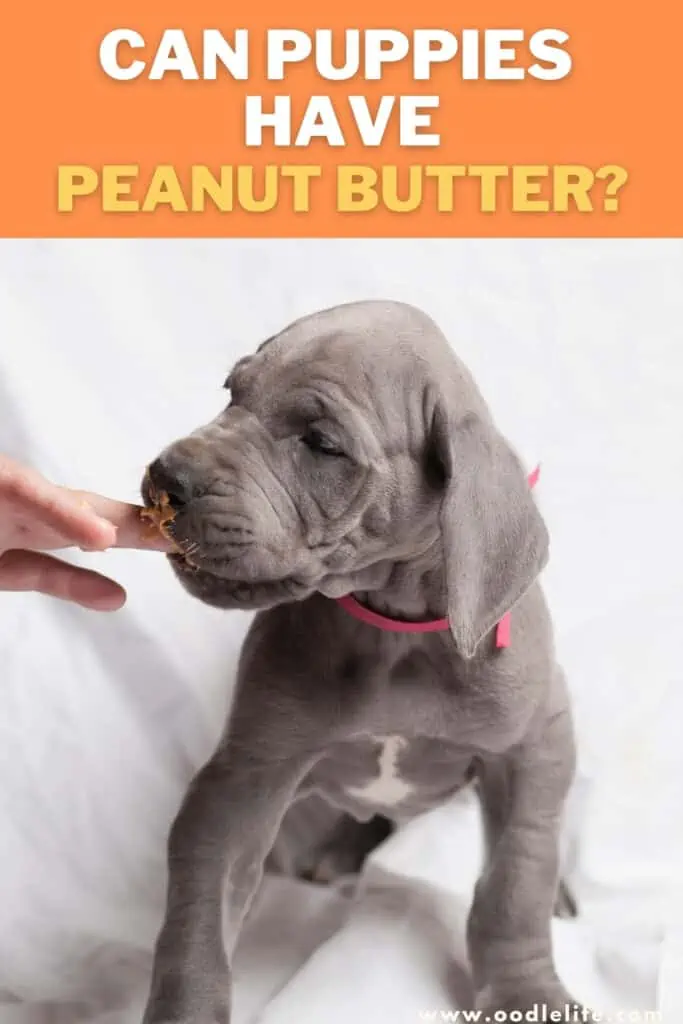
We are going over all your most commonly asked questions about what puppies can and can’t have. We will start with the most frequently asked about ingredient—peanut butter.
Can Puppies Have Peanut Butter?
In short, the answer is yes for most brands. In moderation, most types of peanut butter are very safe for dogs to eat and can make a tasty treat for your new best friend. You can spread it inside hollow bones or toys to spread the fun out all day or just a quick lick from the spoon.
Almost all dogs love peanut butter, making it the perfect treat.
The earliest you can give your puppy peanut butter is around six weeks old. At that point, your pup should be weaned and able to eat solid foods. Ideally, you wait even longer, as the proteins and oils will be challenging for a new pup to digest.
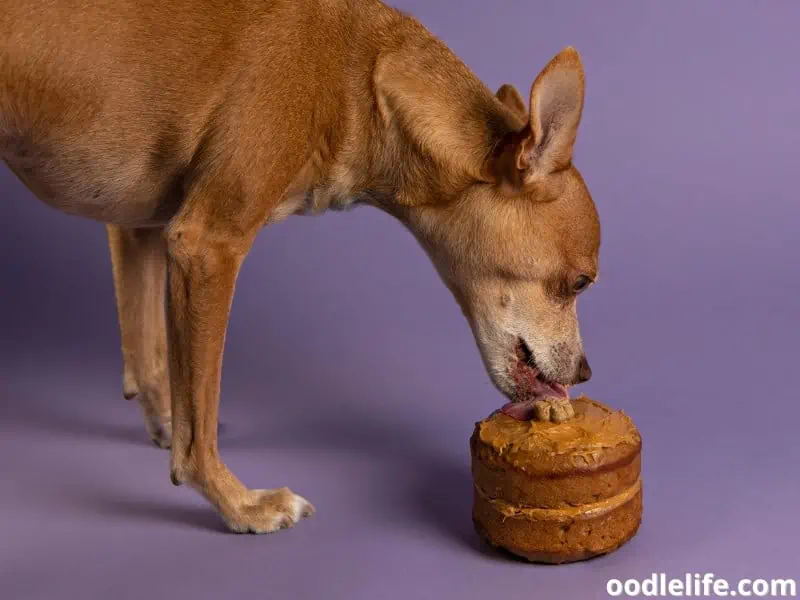
Crunchy vs. Smooth Peanut Butter
When it comes to the crunchy vs. creamy debate, just make sure to take note of the size of chunks. Small breeds and puppies are more likely to choke on an unexpected chunk. Because of this, creamy is likely going to be the way to go.
Be wary of plain peanuts, too — some nuts are very toxic for dogs and can induce everything from depression to vomiting. Even the non-toxic options aren’t great for your puppy, as they are high in fat and choking hazards.
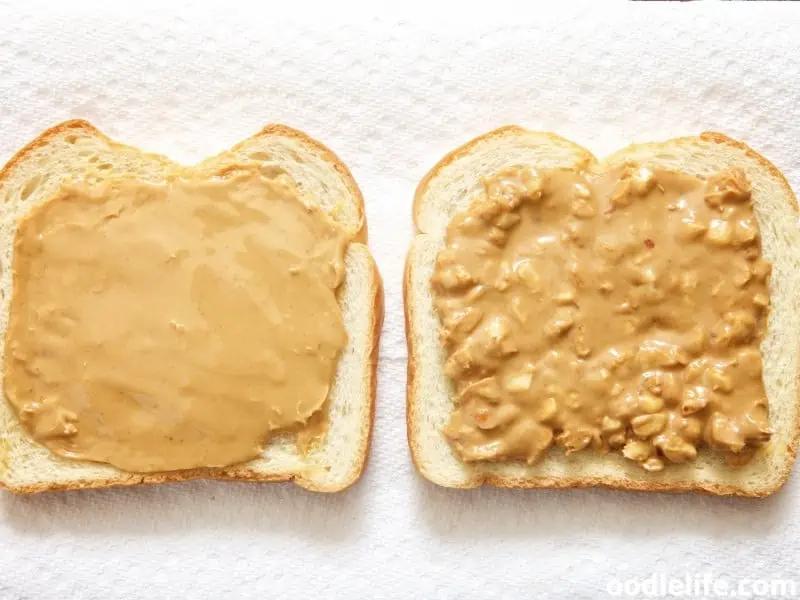
Warning: Xylitol
Most importantly, look for Xylitol, which is deadly for dogs. Xylitol is a basic sugar substitute. This ingredient is found in sugar-free products like breath mints, vitamins, and some baked goods.
While safe and even encouraged for humans, this ingredient is toxic to their furry friends.
Xylitol causes a rapid release of insulin in dogs, which causes a sudden decrease in their blood sugar level. This condition—better known as hypoglycemia—can happen as quickly as ten minutes after a dog ingests Xylitol.
This issue is easy to avoid—just make sure you check the label of peanut butter or any other product you want to give your pup. Brands of peanut butter that are known to include Xylitol on their ingredient list include:
- Go Nuts, Co. Peanut Butter
- No’s ‘N More
- P28 High Protein Peanut Spread
- Krush Nutrition’s Nutty by Nature
However, the most common way dogs ingest Xylitol is through chewing gum. If your dog has ingested xylitol, look for symptoms such as weakness, staggering, lack of coordination, or seizures. If you notice any of these issues, immediately take your dog to the vet.
Other Ingredients to Avoid
There are several other ingredients you should try to avoid giving your dog in general, especially when looking at peanut butter brands. The first of these is sugar and other types of everyone’s favorite sweetener. While sugar is not harmful to dogs in itself, it can cause an overall increased risk of diabetes and obesity.
You should also avoid giving your pet anything with diglycerides, as these ingredients could also lead to possible obesity in pets and potential heart problems.
Finally, check your peanut butter for any hydrogenated vegetable oils. Any peanut butter with additional oils can cause harm over time.
Peanut Butter to Buy
If you know you want to give your dog peanut butter, look for a dog-specific type or homemade version of peanut butter. Peanut butter is rich in natural fats and proteins, but high sodium levels or too much sugar can make this treat bad for your pup long-term.
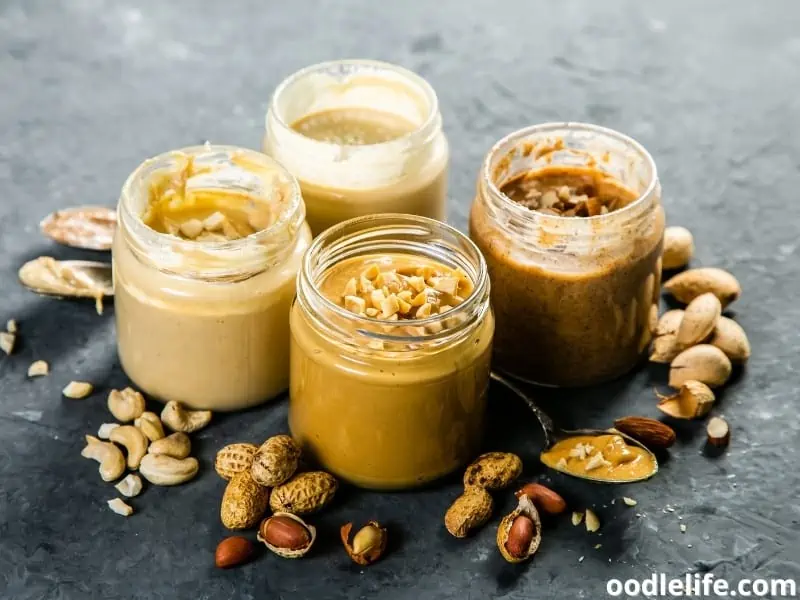
There are several pet-friendly peanut butter brands, including:
365 Every Day Value Smooth
This has one ingredient: organic, USA-grown peanuts.
There is a crunchy and creamy version available, though the former does include salt.
They make a range of peanut butter, but the Every Day Value Smooth is the best choice for those using lick mats or toys.
Teddie Super Chucky Peanut Butter
If you want to be able to share a crunchy experience, try this peanut butter. It has USA-grown peanuts and works just as well inside toys or on lick mats.
This peanut butter is super safe for dogs. The nuts are small and broken up so much that they should not be a choking hazard for your puppy.
Poochie Butter
Unlike the other two, this peanut butter is only for your dog, with six natural ingredients created to help your dog’s health. This includes:
- Peanuts
- Turmeric
- Parsley
- Ginger
- Flaxseed
This peanut butter is a little looser and runnier than most, especially if you like to put peanut butter inside chew toys. While you can put it in the fridge to harden it, this is probably best suited for colder months and more northern areas.
How to Share Peanut Butter With Your Puppy?
You can share peanut butter with your puppy in a variety of ways. One popular choice is lick mats. Lick mats are usually the size of a small plate and shaped like a shallow bowl with small patterned nubs made of silicone, plastic, or rubber.
When you smear a treat like peanut butter on the lick mat, your dog will be distracted by licking around the obstacles.
Another popular choice is KONG balls. These toys are meant to be filled with anything safe to give your dog (including peanut butter) to distract and entertain your puppy for hours. This will also keep your excitable puppy at bay longer than most other toys.
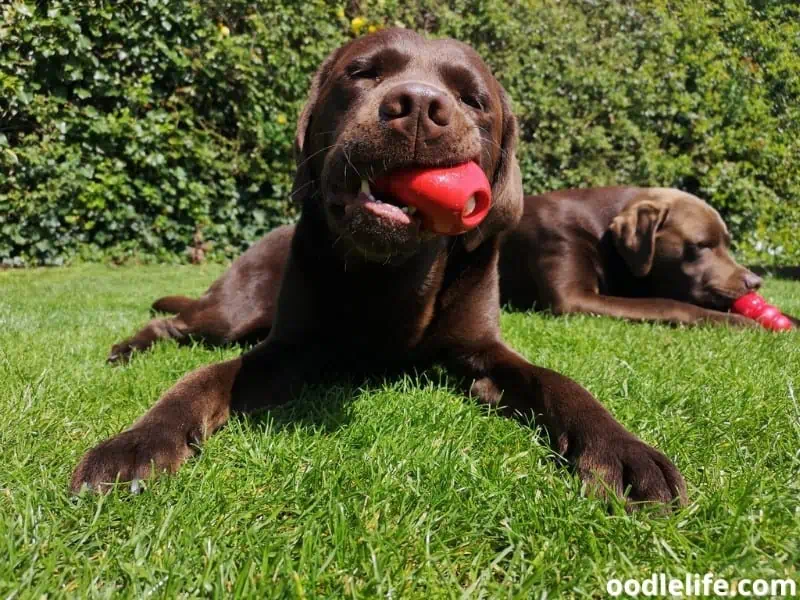
Other Ways to Share Peanut Butter
If you want to make your peanut butter treats a little more exciting, there are some options.
Bananas
Just like us, puppies love peanut butter combined with bananas. Bananas are an excellent snack for your puppy. They are loaded with essential vitamins and are low in cholesterol.
Bananas include:
- Fiber, which is good for your dog’s digestive system
- Vitamin C, which will boost your dog’s immune system
- Potassium, which supports heart and kidney functions
- Magnesium, which promotes healthy bone growth
- Biotin, which helps with coat quality
- Vitamin B6, which is a critical coenzyme that helps your dog build proteins and regulate hormones
Bananas can easily be a healthy, fat-free treat for your best friend. Just keep in mind that they are also high in sugar—so mixed with peanut butter, they should only be a treat, not a replacement for their regular food.
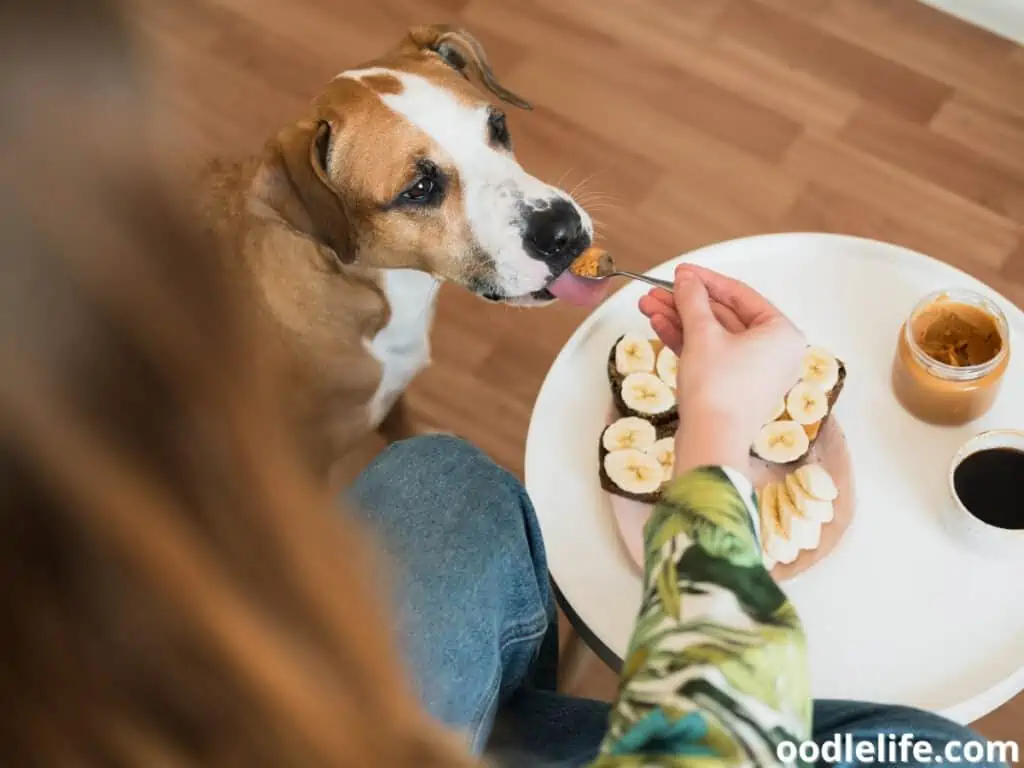
Ice Cream
Puppies cannot have ice cream. High-fat snacks like cows milk should already be in small doses, and ice cream is over the line. It has all the typical issues with dairy, plus sugar, and the threat of chocolate or xylitol.
However, there are doggy ice creams, many of which are peanut butter-flavored. In fact, you can make your own dog-friendly peanut butter ice cream. Your dog will be sure to love this special treat on a hot summer day!